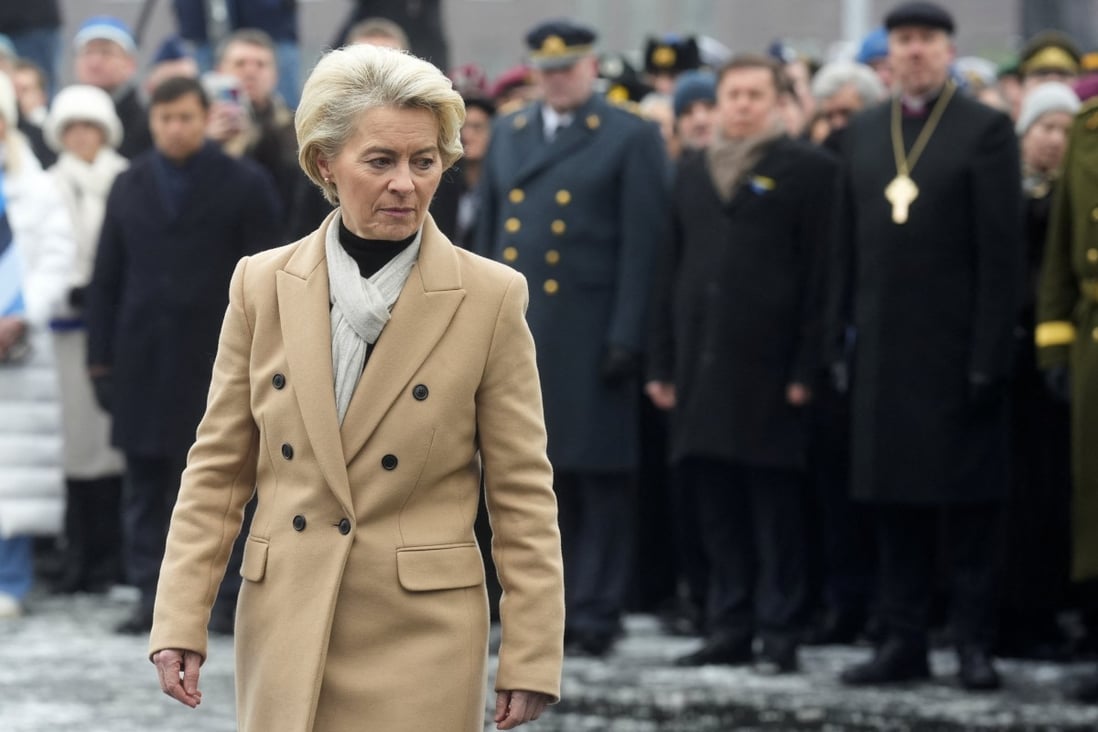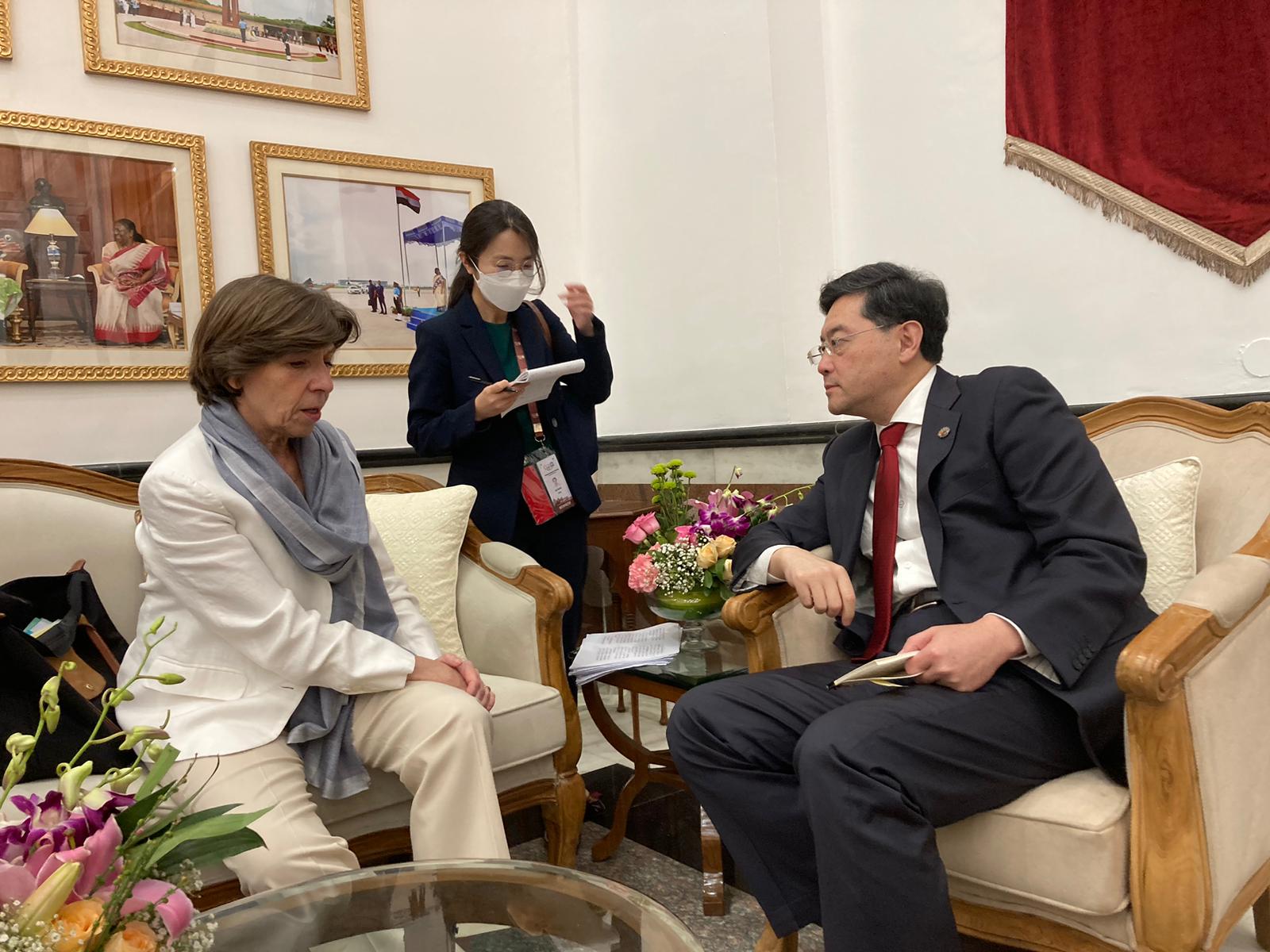- The New Normal/La Nouvelle Normalité/新常態: Moody’s Alters China’s Outlook Amid Economic Concerns - December 10, 2023
- “The Global North vs. The Global South” or “Democracy vs. Autocracy”? It’s Time to Put Away the Binary Rhetoric - November 7, 2023
- The New Normal/La Nouvelle Normalité/新常態: Chinese President Xi Jinping’s Absence from G20 Summit Raises Questions About U.S.-China Relations - September 30, 2023
On the first anniversary of the war in Ukraine, the Chinese Foreign Ministry released a document entitled “The Global Security Initiative Concept Paper.” Three days later, the Chinese Foreign Ministry released “China’s Position on the Political Settlement of Ukraine Crisis,” which means that Beijing does not mind stepping to the fore. Certainly, these documents not only state China’s position on the Russo-Ukraine war but also reflect China’s intention to resolve the crisis differently from the Western sanctions. The position paper contains 12 points: [1] Respecting the sovereignty of all countries, [2] Abandoning the Cold War mentality, [3] Ceasing hostilities, [4] Resuming peace talks, [5] Resolving the humanitarian crisis, [6] Protecting civilians and prisoners of war (POWs), [7] Keeping nuclear power plants safe, [8] Reducing strategic risks, [9] Facilitating grain exports, [10] Stopping unilateral sanctions, [11] Keeping industrial and supply chains stable, [12] Promoting post-conflict reconstruction. It appears to balance moral sympathy for Ukraine, which includes respecting its territorial integrity with opposition to the use of nuclear weapons and Russia’s security concerns on NATO expansion. Article 1 addresses Ukraine’s core concerns about sovereignty. Article 2 and Article 10 addressed Russia’s concerns about insecurity. Article 3 and Article 4 address the concerns of those countries in the EU that do want to keep peace in the Eurasian continent, especially Germany and France. Many Western media, however, are calling it simply a repeat of China’s previous positions on the conflict, and it is not a peace plan at all. A quick scan of China’s position paper and the Chinese recent actions and diplomatic documents, such as US Hegemony and Its Perils, all along shows that China’s target is the US. China sees the US as the instigator of the crisis and the one who poured oil on the flame. Article 2 in the position paper, “Abandoning the Cold War Mentality,” is highly critical of the US policy of decoupling and using the Ukraine crisis as a proxy war against Russia. Article 10, “Stopping Unilateral Sanctions,” and Article 11, “Keeping Industrial and Supply Chains Stable,” are both implied criticisms of the US for using international public goods (such as SWIFT) without the approval of the UN as unilateral sanctions and disrupting the stability of the industrial chain. Although both Russia and Ukraine have shown positive responses to China’s position paper, from an international relation realist perspective, it is well known that the root of the war between Russia and Ukraine is the structural conflict between Moscow and Washington. It is, therefore, unclear how much China’s position paper will contribute in substance to a ceasefire and peace talks between the two sides at a time when there is no mutual political trust between Beijing and Washington.

The US is not convinced by China’s position paper at all. The national security advisor to Biden, Jake Sullivan, said that his first response to the paper was that “it could stop at the point one [respecting the sovereignty of all countries].” Meanwhile, the US is also questioning the attitude of neutrality expressed by China in the paper. By constantly warning against lethal aid to Russia, the US is tying China to Russia in international public opinion. It is another way of telling the international society that China is on Russia’s side. On China’s position paper, the EU holds the same position as the US. The President of the European Commission, Ursula von der Leyen, expressed reservations about the neutrality of the Chinese statement. She stated that China’s promised attempt could not be seen as neutral because it was not a peace plan but a Sino-Russian principle that had to be seen in a specific backdrop, the backdrop in which China had already taken sides before the invasion, such as the “unlimited friendship” claimed by the two countries, and therefore the EU would, of course, examine these principles in that backdrop.

At a time when the US-China game is becoming increasingly intense, the closeness of the Sino-Russian relationship makes it easy for western countries to think that China is naturally siding with Russia. Indeed, there is a strategic need for China not to isolate Russia while the US is decoupling with China. It is difficult to clarify that being anti-American hegemony is not being pro-Russian for the Chinese leadership. The fact that China has tried so hard to disclaim its support for Russia, but has avoided direct criticism of Russian aggression against Ukraine’s territory, is a clear indication of China’s strategic consideration. How can China, which is strategically supportive of Russia in general, clarify that it has not sided with Russia is the dilemma it faces. To solve this dilemma, the Chinese government should try to persuade as many as possible the Global South countries and EU member states, especially France and Germany, to buy China’s position. In the previous UN vote, many countries of the Global South joined the West in condemning Russia’s invasion of Ukraine, but most did not join the West in sanctioning Russia. For them, the moral zeal shown in the West’s reaction to Russia’s invasion of Ukraine is absent. They were more concerned about the impact of the war on their own country, such as food shortages and rising energy prices. From this perspective, the countries of the Global South are more likely persuaded by China. Among the Western camp, Germany, France and other Western Europe countries’ interests were clearly different from those of the US in the Russo-Ukraine war. However, they were unable to express and defend their interests publicly due to domestic and international pressure. Their behaviours of pro-negotiation are usually viewed as a betrayal of democracy. Therefore, China should, to a certain extent, act as a mouthpiece for Western European countries, expressing positions that they are incapable to express. Of course, China should not ignore the opinion of Eastern Europe as well. After all, long-lasting peace in Eurasia cannot be achieved without reconciliation between Russia and the countries of the former Soviet Union. If China wants its position paper to be more widely accepted and supported, it should listen more to the Global South countries and EU members and take into account the interests of these countries in the future.

Suggested Readings:
Quelle est la position de la Chine dans le conflit russo-ukrainien? by Marc Julienne, Le Figaro
Face à la guerre menée par Poutine en Ukraine, la Chine peine à see positionner by Richard Arzt, Slat
The Russia-China Alliance versus the West: What about the Rest? By Karin von Hippel and Robert Fry




Pingback: The New Normal/La Nouvelle Normalité/新常態: From the Resumption of Diplomatic Relations between Saudi Arabia and Iran to Xi’s Visit to Russia – The Strategic Game Between China and the US Behind the Scenes - The New Global Order